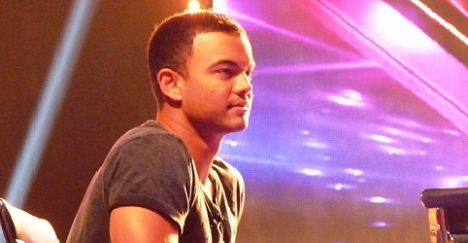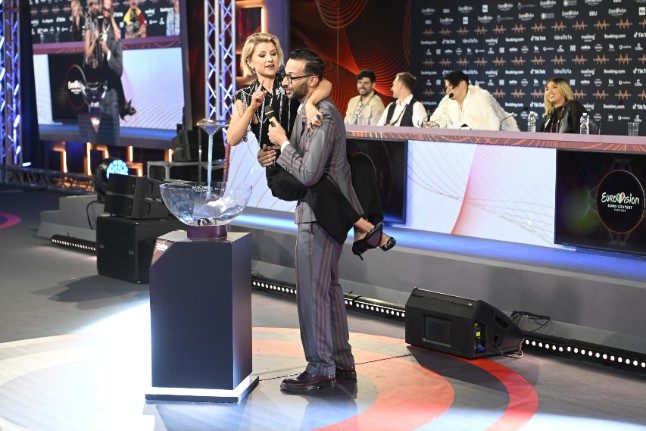But as Australia's maiden entry in the annual jamboree of the camp, the catchy and the corny from 1900 GMT, and watched by some 200 million people worldwide, achieving victory will be tough — and a major upset.
“It's very overwhelming. I've been fortunate enough to perform on various different stages but when you get on that Eurovision stage it's like nothing else I've ever done in my life,” Sebastian said.
Eurovision has a cult following in Australia, which led to the special invitation to mark six decades of the show.
Chiseled Mans Zelmerlow of perennial favourites Sweden — home of ABBA, whose 1974 victory with “Waterloo” propelled them to global fame — is the top pick among bookmakers to win with the upbeat “Heroes”.
Stiff competition also comes from Russian Polina Gagarina with “A Million Voices”, a paean to peace that she hopes will silence the boos that Russia's entry got last year after the annexation of Crimea.
Others in with a chance are Italian pop opera Il Vole, Belgian Loic Nottet, Estonian duo Elina Born and Stig Rasta or Morrland and Debrah Scarlett of Norway — the country that holds the record for scoring zero points the most times.
Long shots among the 27 finalists include Ann Sophie of Germany — whose first-choice act withdrew — Knez of Montenegro and Poland's Monika Kuszynska, confined to a wheelchair since a car crash in 2006.
Geopolitics will again be present this year with Armenia's ballad — described by Austrian magazine Profil as “feeling as long as a Wagner opera” — widely seen as being about the 1915 mass killings by Ottoman Turkey.
Turkey, which refuses to recognise the killings as genocide, has been absent from Eurovision since 2012. Another no-show is Ukraine, cash-strapped from the conflict with Russian-backed rebels in its east.
France's entry, “N'oubliez pas” (“Don't forget”) by Lisa Angell, is to mark the centenary of the start of World War I — one year late, some might say — and prospects for France's first victory since 1977 are slim.
Turkeys, orcs and babushkas
Mostly though the riotous anything-goes affair, open to the 56 members of the European Broadcasting Union and a world away from its civilised black-and-white beginnings, is about not taking life too seriously.
Previous entries have included six Russian grannies, Ireland's irreverent Dustin the Turkey and Finnish heavy metal outfit Lordi — looking like orcs from “Lord of the Rings” — who won in 2006 with “Hard Rock Hallelujah”.
The lyrics often make no sense, if they are in any recognised language at all, like “Diggi-Loo Diggi-Ley” by golden-booted Swedish Mormon brothers Herreys in 1984, “La La La” in 1968 or Lulu's “Boom-Bang-A-Bang” in 1969.
And who can forget the chorus to Austria's 1977 entry: “Boom boom boomerang, snadderydang. Kangaroo, boogaloo, didgeridoo. Ding dong, sing the song, hear the guitar twang. Kojak, hijack, me and you.”
The event has also long stressed tolerance for the unconventional, as witnessed by Israeli transgender Dana International in 1998, Ukraine's Verka Serduchka in 2007 and bearded Austrian drag queen Conchita Wurst in 2014.
Conchita's message — she will fly into the stage by trapeze at the start of the contest — has been enthusiastically adopted by Viennese authorities, including with special gay-themed traffic lights.
“I like the feeling because it's a little bit trashy but it's also very exciting,” said one German fan attending for the first time. “I have loved this show for 15 years and watch it every year on television.”



 Please whitelist us to continue reading.
Please whitelist us to continue reading.
Member comments